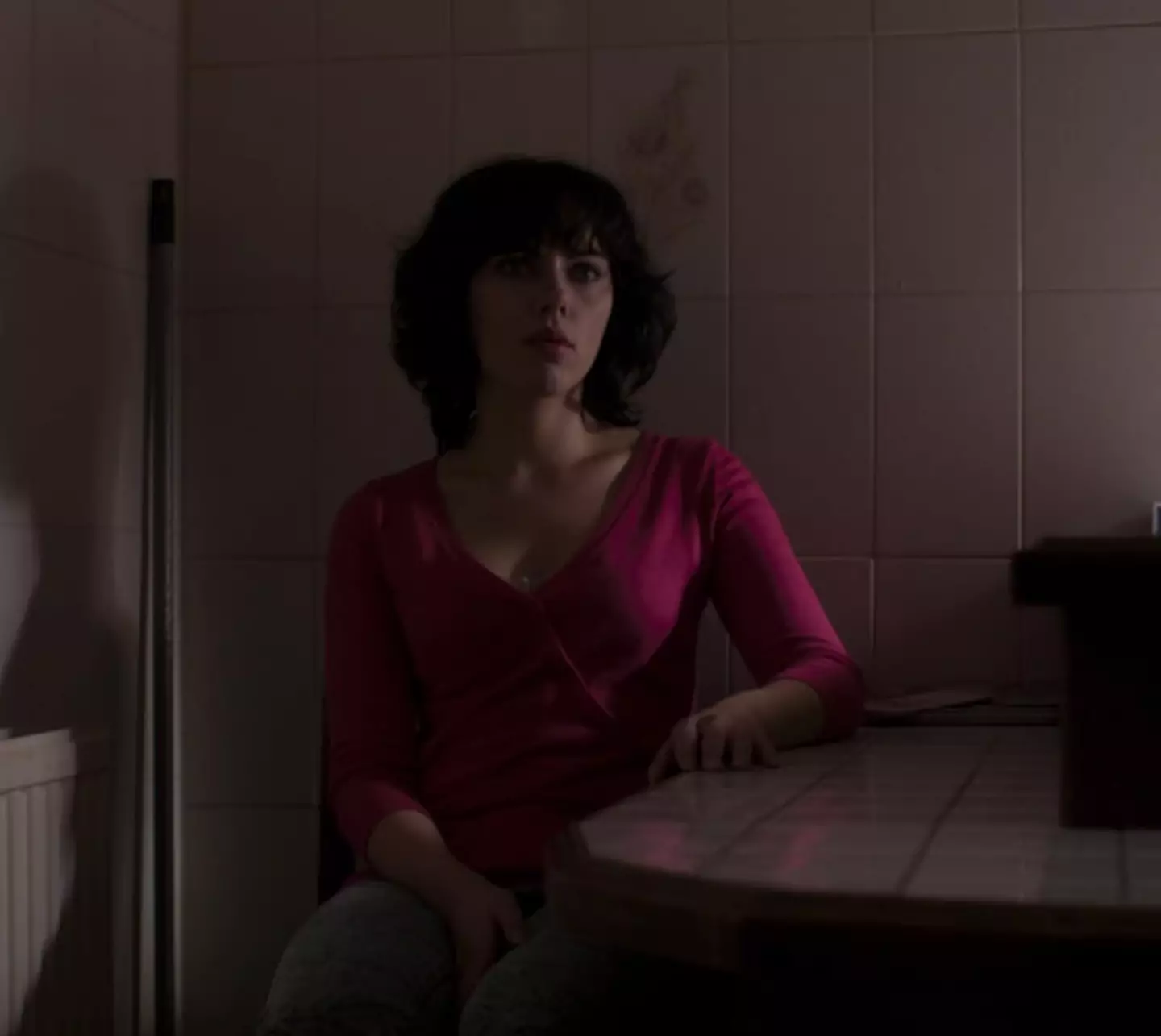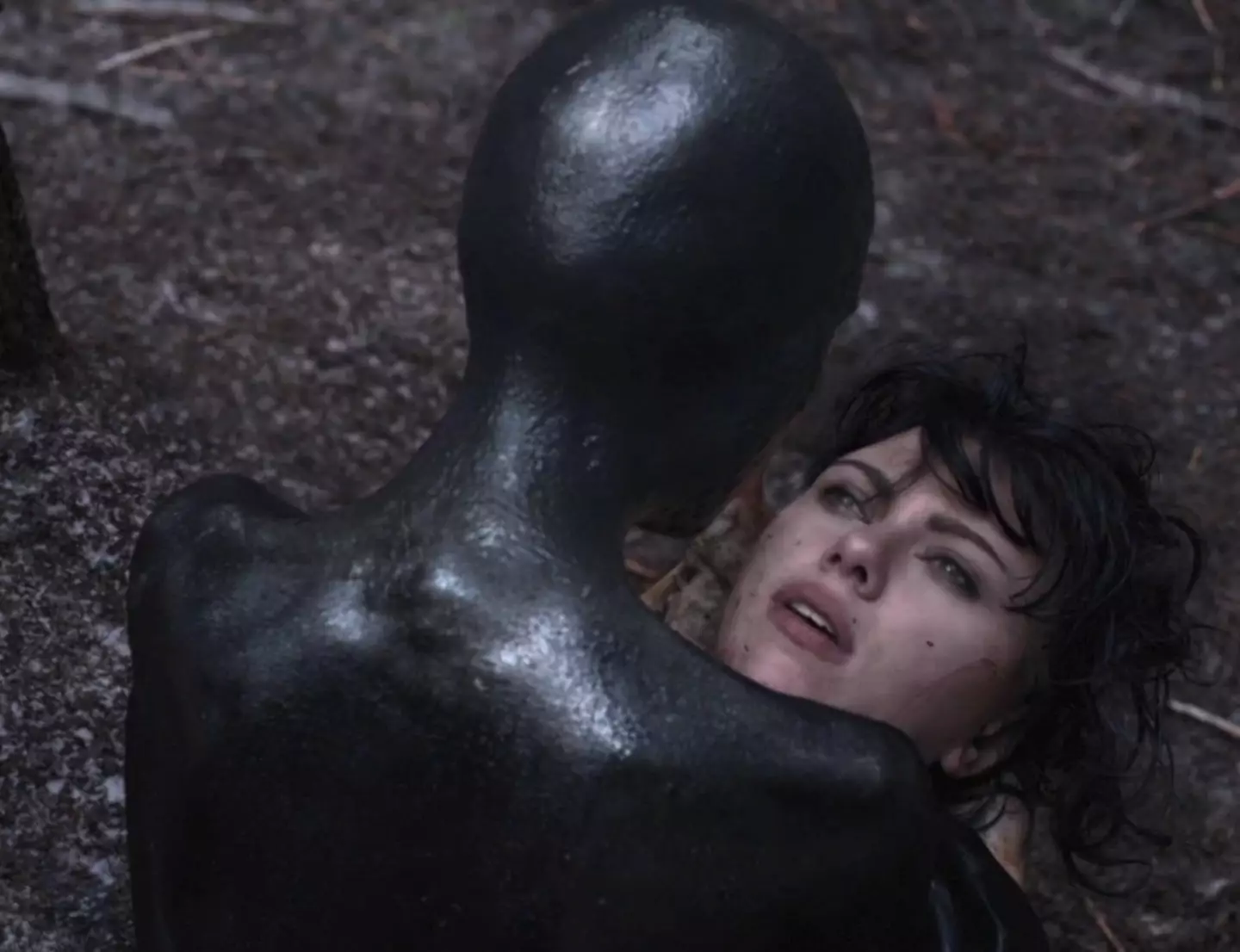Scarlett Johansson is a household name, known for her iconic roles in films like Lost in Translation and her tenure as Black Widow in the Marvel Cinematic Universe. However, one of her most critically acclaimed performances comes from a film that many mainstream audiences might have overlooked. The 2013 sci-fi thriller Under the Skin, directed by Jonathan Glazer, has been voted the best British film of the 21st century, and it’s a surreal cinematic masterpiece that continues to spark debate among viewers and critics alike.
The Rise of Scarlett Johansson

Johansson’s journey to becoming one of Hollywood’s most celebrated actors began long before she donned her superhero suit. Starting her career in off-Broadway productions as a child, she quickly transitioned to the silver screen with standout roles in films like The Horse Whisperer and Ghost World. By the mid-2000s, she had firmly established herself as a powerhouse performer, blending indie charm with blockbuster appeal.
Her star power peaked in the 2010s when she became the highest-paid actress in the world, thanks in part to massive box office hits like Avengers: Infinity War and Endgame. But while her Marvel roles cemented her mainstream appeal, it was her haunting performance in Under the Skin that showcased her artistic depth.
The Plot of Under the Skin
In Under the Skin, Johansson plays an enigmatic, shape-shifting alien who takes on a human form and prowls the streets of Scotland in search of prey. Her character uses her otherworldly allure to lure unsuspecting men into a mysterious van, ultimately leading them to their doom in a surreal, liquid-like void. These hauntingly atmospheric scenes are as chilling as they are visually arresting.
Based on Michel Faber’s novel of the same name, the film strips away conventional storytelling, relying on stark visuals, minimal dialogue, and an unsettling score by Mica Levi to immerse viewers in its eerie narrative. It’s a story that challenges perception, exploring themes of identity, humanity, and the alienation that comes with seeing the world through an outsider’s lens.
Critical Acclaim and Audience Division
Critics have lauded Under the Skin as a groundbreaking piece of cinema, with an 83% rating on Rotten Tomatoes. The film’s ability to blend avant-garde storytelling with haunting visuals has earned it widespread recognition. According to a poll conducted by MASSIVE Cinema in 2022, Under the Skin beat out celebrated titles like This is England, Children of Men, and Ex Machina to be crowned the best British film of the century.
MASSIVE Cinema praised the film for its “chilling originality” and described Johansson’s performance as “haunting and singular.” Critics like Nicholas Bell of IONCINEMA.com have called it a “cinematic masterpiece,” while Dustin Chang of Floating World hailed it as “one of the most singularly mesmerizing movie-watching experiences.”
However, the general audience’s reception has been more polarizing. With over 25,000 reviews on Rotten Tomatoes, the film holds a 55% audience score, reflecting a sharp divide between those who view it as a masterpiece and those who found it baffling or unengaging. As one viewer noted, “Scarlett Johansson is haunting in this disturbing yet visually stunning slow-burning sci-fi,” while another dismissed it as “absolute crap.”
Why Under the Skin Resonates with Critics

The film’s critical acclaim can be attributed to its refusal to adhere to traditional cinematic formulas. Under the Skin is not a film that hands its audience easy answers. Instead, it invites viewers to interpret its abstract imagery and ambiguous plot, creating an experience that lingers long after the credits roll.
- Visual Storytelling: Glazer’s use of stark, minimalist visuals juxtaposed with the haunting beauty of Scotland’s landscapes creates a world that feels both alien and familiar. The scenes in the “void,” where Johansson’s victims meet their fate, are particularly striking and leave a lasting impression.
- Mica Levi’s Score: The hypnotic, otherworldly score heightens the film’s unsettling atmosphere, enhancing its dreamlike quality.
- Johansson’s Performance: Her portrayal of the alien is masterfully restrained, relying on subtle facial expressions and body language to convey her character’s arc from predator to a being grappling with newfound vulnerability.
These elements combine to make Under the Skin a film that’s less about plot and more about mood, themes, and the visceral reactions it evokes.
Exploring the Themes of Under the Skin
At its core, Under the Skin explores profound questions about identity and humanity. Johansson’s character begins as a detached predator, viewing humans as nothing more than prey. However, as the film progresses, she starts to experience moments of empathy and self-awareness, leading her to question her purpose and place in the world.

The film also delves into the nature of human connection and isolation. The men she encounters represent a spectrum of human vulnerability, and their interactions with her highlight the fragility and complexity of human existence.
Why Some Viewers Don’t Connect with the Film
While critics have celebrated Under the Skin for its daring approach, it’s not a film that caters to everyone. Its slow pacing, abstract narrative, and lack of traditional dialogue make it challenging for viewers expecting a more conventional sci-fi thriller. The ambiguity that critics love can feel alienating to those who prefer a clear-cut story.
For some, the film’s experimental style feels more like an art installation than a cohesive narrative. As one detractor put it, “I didn’t understand the movie, so I turned it off after 30 minutes.”
Legacy and Influence

Despite its divisive reception, Under the Skin has cemented itself as a modern classic. Its influence can be seen in the way it has inspired filmmakers to push the boundaries of genre storytelling. From its arresting visuals to its exploration of existential themes, the film remains a touchstone for experimental cinema.
Conclusion: A Masterpiece for the Ages
Under the Skin may not be for everyone, but its impact on modern cinema is undeniable. For Scarlett Johansson, it represents one of her most daring and memorable performances. For director Jonathan Glazer, it’s a testament to his ability to craft stories that challenge and captivate in equal measure.
Whether you see it as a surreal masterpiece or an inscrutable oddity, there’s no denying the conversations it sparks. Under the Skin isn’t just a film—it’s an experience, one that demands reflection and rewards those willing to embrace its strangeness. If you haven’t seen it yet, perhaps it’s time to step into the void.


